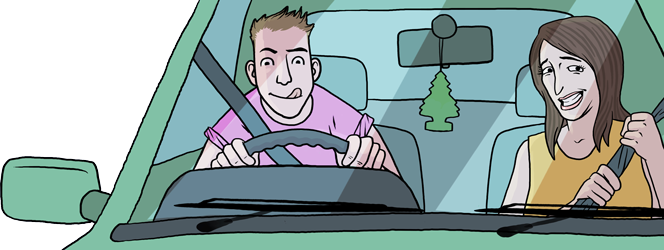
How to deal with a driving test fail
It happens - to more than half the people taking tests each day. Still, after all the money and effort, it’s a bit of a blow.
So what can you do to get you and your learner back on the horse?
-
Don’t even entertain giving up
After so much work, giving up isn't an option. If your child was to ‘pick it up again later’, they would have to pretty much start again. Keep the momentum.
-
Book another test for one month from now
Your child’s driving instructor wouldn't have agreed to booking the test if they thought there wasn't a snowflake’s chance they’d pass. So it stands to reason that you’re not looking at a 6-month set-back.
A month is plenty of time to work on the feedback from the examiner, both in lessons and in private practice, and booking it straight away means you won’t have to wait 2 months for another slot to come up.
If you’re looking at a hefty wait, try looking for cancellations by going to the GOV.UK changing the time of your test wizard and checking available dates. You can just exit if there isn't a suitable time and it won't affect your booking.
If the week of the test rolls around and the team (that's you, your child and their driving instructor) doesn't feel ready, you can get a refund if you cancel with at least 3 working days’ notice. So there’s no excuse: book the next go now!
-
Keep up the lessons and practice
It’s tempting to take a break after a fail to wallow in the disappointment but that's the opposite of what needs to happen. Especially if you're holding out for a cancelled slot so your child can retake their test sooner - they need to be prepared to go at any time.
Your child will also have been given some idea of where they need to get some more practice from their examiner, so going back over any tricky areas is very important to make sure they’re not going to repeat the same mistakes.
In private practice, you can focus on driving around the area near the test centre to make sure your child is 100% familiar with all the traffic lights, roundabouts and speed limits. This practice helps to fight the brain freeze that can happen under pressure, so they act instinctively. Go over those manoeuvres too!
-
Work on the confidence
It can feel like the end of the world to have put in so much work only to fail but the positive to emphasise to your child is that they will know exactly what to expect from the next test, which can get rid of some of the anxiety that leads to silly mistakes.









